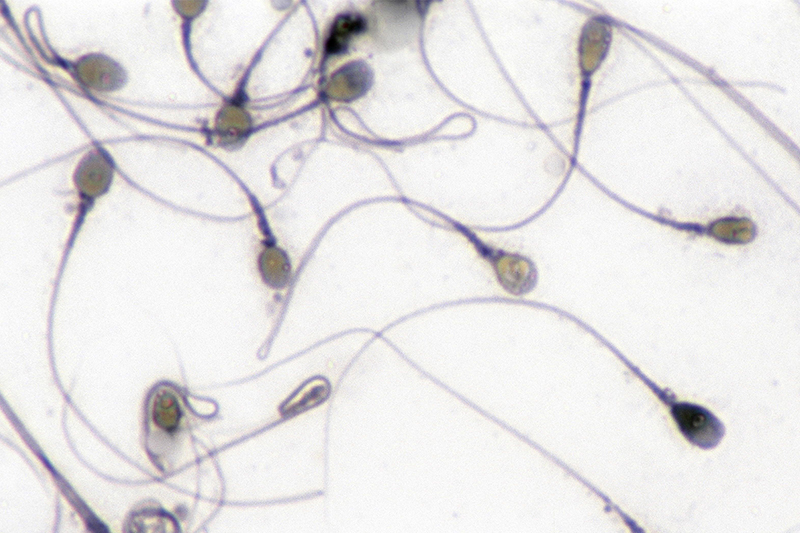
WHAT:
In a mouse study, researchers funded by the National Institutes of Health have identified a potential non-hormonal contraceptive that men could take shortly before sexual activity and have fertility restored the next day. Researchers gave male mice a compound that temporarily disables soluble adenylyl cyclase, the enzyme essential for activating a sperm cell’s ability to swim and mature so that it can travel through the female reproductive tract and fertilize an egg.
In several tests, the researchers showed that the compound TDI-11861 rendered mouse sperm cells immobile and prevented them from maturing. The compounds did not interfere with the animals’ sexual functioning. Although male mice mated with females, no pregnancies were observed. Sperm recovered from female mice remained incapacitated. The authors did not observe any side effects in the male or female mice. The compound wore off three hours later, and males recovered their fertility.
The study was conducted by Melanie Balbach, Ph.D., a postdoctoral fellow in the laboratories of coauthors Jochen Buck, Ph.D., and Lonnie Levin, Ph.D., at Weill Cornell Medical College, New York City, and colleagues. It appears in Nature Communications. Funding was provided by NIH’s Eunice Kennedy Shriver National Institute of Child Health and Human Development, National Institute on Aging, and National Cancer Institute.
The researchers say their work provides proof of concept that soluble adenylyl cyclase inhibitors have the potential to provide a safe, on-demand, non-hormonal and reversible oral contraceptive for men.
WHO:
Christopher C. Lindsey, Ph.D., a program official in the NICHD Contraception Research Branch, is available for comment.
ARTICLE:
Balbach, M. Research Letter: On-demand male contraception via acute inhibition of soluble adenylyl cyclase. Nature Communications.2022. https://doi.org/10.1038/s41467-023-36119-6
###
About the Eunice Kennedy Shriver National Institute of Child Health and Human Development (NICHD): NICHD leads research and training to understand human development, improve reproductive health, enhance the lives of children and adolescents, and optimize abilities for all. For more information, visit https://www.nichd.nih.gov.
About the National Institutes of Health (NIH): NIH, the nation's medical research agency, includes 27 Institutes and Centers and is a component of the U.S. Department of Health and Human Services. NIH is the primary federal agency conducting and supporting basic, clinical, and translational medical research, and is investigating the causes, treatments, and cures for both common and rare diseases. For more information about NIH and its programs, visit https://www.nih.gov.


 BACK TO TOP
BACK TO TOP